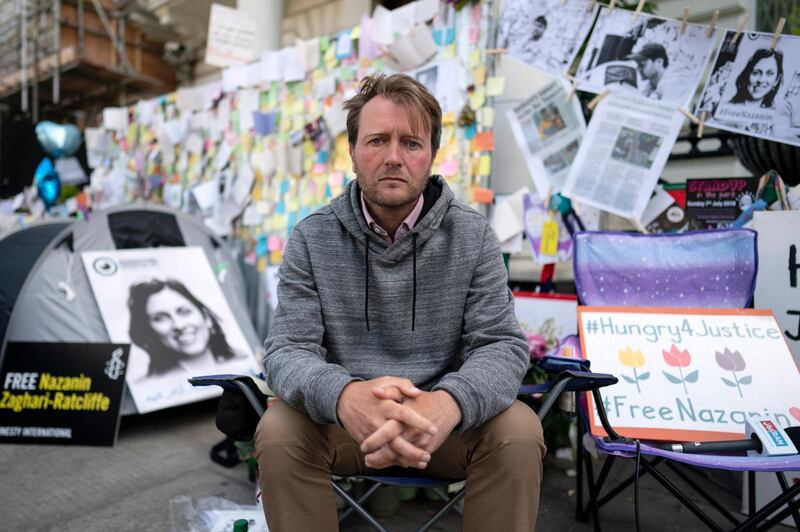The husband of a British-Iranian national jailed in Tehran in 2016 plans to urge the British Prime Minister, Boris Johnson, to pay £400 million owed to Iran in humanitarian aid.
Richard Ratcliffe's suggestion would mean the UK would be able to avoid international sanctions.
Mr Ratcliffe is due to meet Mr Johnson on Thursday for the first time since he became prime minister.
Nazanin Zaghari-Ratcliffe has been detained in Tehran where she was given a five-year sentence on charges of espionage.
When he was foreign secretary, Mr Johnson was accused by Mr Ratcliffe of worsening his wife’s situation by incorrectly stating that she was in the Iranian capital to train journalists.
Mr Ratcliffe told The Guardian that the British government must take steps to secure the release of hostages with ties to the UK, or more dual nationals will be arrested and his wife might be charged further.
Britain owed the £380m debt to the Iranian Defence Ministry after it reneged on a deal to supply tanks to the former shah after the 1979 revolution.
The UK’s failure to pay the debt is considered to be linked to Ms Zaghari-Ratcliffe’s release, although publicly, officials have denied this.
The UK says it cannot end the debt through a direct financial payment to the Iranian Defence Ministry because the ministry is subject to EU sanctions.
A UK government representative said in November that funding to settle the debt was paid to the High Court in 2002.
"This is a long-standing case and relates to contracts signed over 40 years ago with the pre-revolution Iranian regime," the representative said.
"It would be inappropriate to comment further while litigation continues.”
But in a further hearing in London on Wednesday, Iranian lawyers asked the Court of Appeal to reverse a High Court ruling stating Britain did not have to pay any interest on the debt for the period since EU sanctions were applied to the Iranian Defence Ministry in 2008.
The interest amounts to more than £20m.
Mr Ratcliffe said he would push Mr Johnsonh to define a strategy for his wife's release. He told The Guardian that the outstanding debt was "the elephant in the room".
“The UK government simply doing nothing will have consequences,” he said. “The Iranians are clearly signalling that if the Brits are decent they will pay this money and if not, there will be consequences.
"My sense is that the Iranians will keep Nazanin and at the end of her sentence will charge her again.
"There is also a very real risk that more Brits will be picked up as part of this wider narrative to blame an outsider for what is happening in Iran.”








